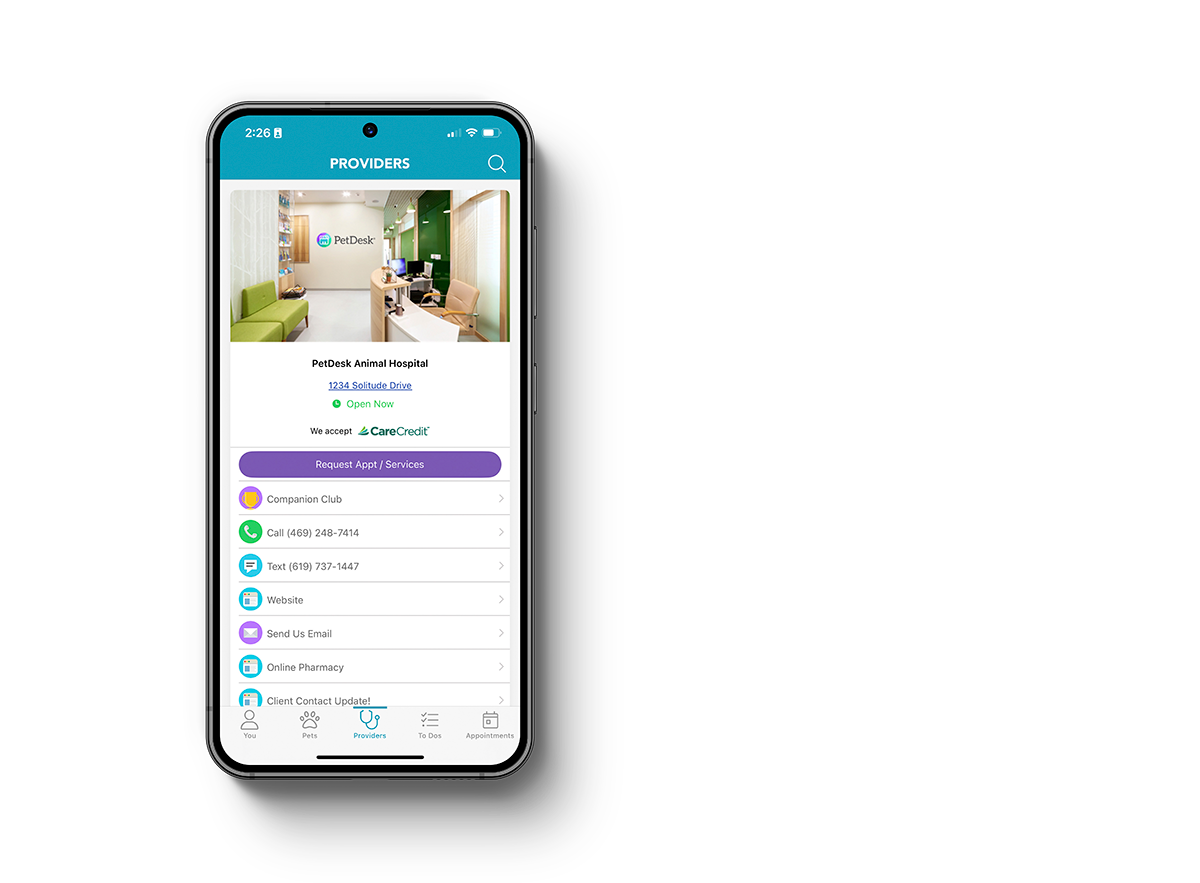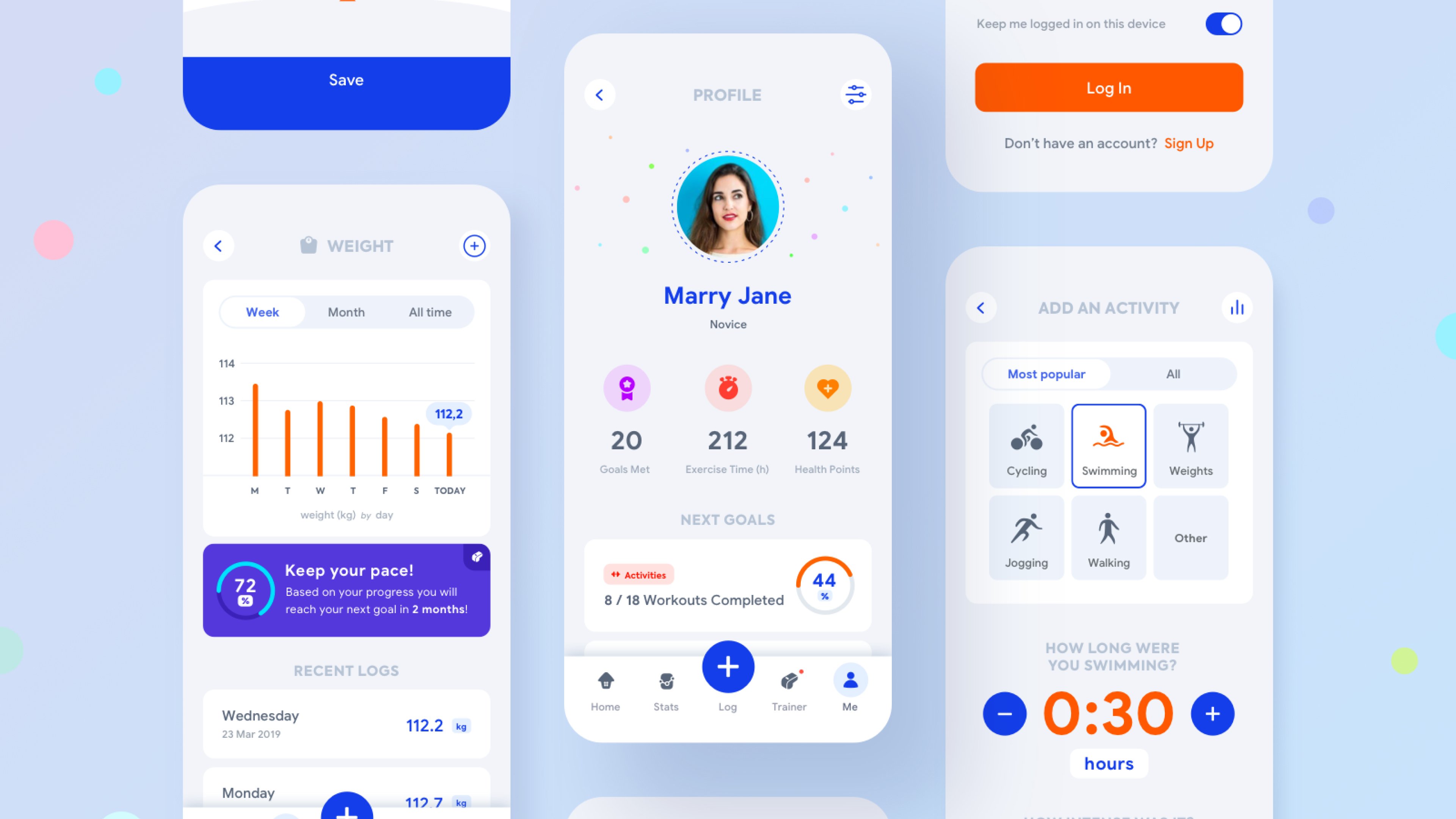How a Mobile App for Clinics Improves Interaction Between Doctors and Patients
How a Mobile App for Clinics Improves Interaction Between Doctors and Patients
Blog Article
The Future of Healthcare: Why Clinics Need a Mobile Application Today
As the healthcare landscape continues to progress, facilities encounter placing stress to adjust to person assumptions for greater convenience and accessibility. The assimilation of mobile applications can offer as a vital strategy for improving client engagement and enhancing operations.
Changing Individual Assumptions
As the landscape of healthcare evolves, individual expectations are going through a significant makeover. Today's clients are progressively looking for benefit, accessibility, and individualized treatment. With the increase of innovation, specifically mobile applications, people currently expect a seamless assimilation of health care services right into their lives. They want the capability to take care of visits, gain access to clinical documents, and communicate with doctor through their smartphones, reflecting a change in the direction of a more positive approach to health and wellness management.
Furthermore, clients are ending up being extra informed and encouraged, usually researching conditions and therapies on the internet prior to appointments. This enhanced understanding is combined with a demand for transparency in healthcare processes, consisting of price price quotes and treatment choices. Consequently, suppliers are forced to adapt by embracing electronic devices that improve the client experience.
The assumption for timely and reliable interaction has never ever been higher, with several clients thinking about responsiveness a critical component of quality treatment. mobile app for clinics. In this evolving landscape, health care companies must identify these changing assumptions and utilize mobile applications to foster a more patient-centric strategy, making sure that they not just fulfill however go beyond the requirements set by today's enlightened customers
Enhancing Client Involvement

Mobile applications help with interaction in between individuals and doctor, allowing real-time consultation scheduling, tips for medication adherence, and straight messaging attributes. These functionalities not only boost ease yet likewise construct a feeling of accountability among clients. Furthermore, mobile applications can use instructional material tailored to private requirements, helping patients much better recognize their problems and treatment options.
The assimilation of gamification aspects within health care applications can likewise motivate patients to involve in healthy and balanced actions, enhancing positive way of life modifications. Eventually, enhancing individual interaction through mobile applications leads to improved health and wellness end results, better patient contentment, and an extra collective medical care experience.
Streamlining Facility Workflow
Enhancing center operations is vital for enhancing workflow effectiveness and maximizing person care. The application of mobile applications can dramatically reduce management problems, enabling healthcare suppliers to concentrate a lot more on individual communications. By automating appointment scheduling, patient check-ins, and payment processes, facilities can minimize wait times and boost general functional efficiency.
Mobile applications additionally assist in real-time access to individual documents, allowing medical care professionals to make enlightened choices swiftly. This immediacy not only enhances the quality of care yet also reduces the likelihood of errors related to lost or outdated details. Leveraging mobile innovation sustains an extra well organized method to managing patient follow-ups and therapy strategies, making certain that no essential actions are overlooked.
In addition, mobile apps can streamline supply administration by providing facilities with tools to keep an eye on medicines and products successfully. This permits prompt replenishment and helps stay clear of disturbances in person treatment as a result of stock lacks. By integrating these capabilities right into their daily operations, centers can produce an extra effective and natural atmosphere, inevitably causing enhanced individual end results and contentment. Accepting mobile modern technology is not just a fad; it is a necessary development in the healthcare landscape.
Improving Communication Networks
Reliable interaction is often pointed out as a foundation of quality health care distribution. In today's busy medical atmosphere, mobile applications can substantially boost interaction see here channels in between centers, people, and health care providers. By incorporating mobile apps right into their operations, clinics can facilitate real-time communications, making certain that people receive timely information concerning their visits, examination outcomes, and therapy plans.
Mobile applications also empower clients to connect straight with their health care teams via safe and secure messaging attributes. This straight line of interaction fosters a sense of interaction and enables for immediate information of worries, which can cause better adherence to treatment protocols. Additionally, press notifications can advise clients of upcoming appointments or drug routines, lowering no-show rates and enhancing total health end results.

Staying Competitive in Health Care
In a rapidly progressing health care check this landscape, organizations must focus on innovation and adaptability to keep an affordable side. The combination of mobile applications right into healthcare services is no more optional; it is vital for facilities aiming to improve individual involvement, enhance procedures, and boost overall solution delivery.
As clients progressively depend on digital platforms for health and wellness administration, facilities that fall short to adopt mobile technology threat falling behind. A properly designed mobile app can provide attributes such as consultation scheduling, telemedicine assessments, and accessibility to medical records, offering patients with comfort and cultivating commitment.

Rivals are likewise investing in mobile services, so staying ahead requires continual improvement and remaining educated concerning technological developments. Facilities have to not just apply mobile applications but likewise participate in routine updates and refinements. Inevitably, the successful assimilation of mobile modern technology will certainly distinguish forward-thinking health care companies have a peek at this website and established the benchmark for patient-centric care in a digital world.
Conclusion
To conclude, the assimilation of mobile applications in clinics is important to deal with the progressing landscape of person expectations. By boosting person involvement, enhancing procedures, and enhancing interaction channels, facilities can dramatically increase wellness results. Additionally, the adoption of mobile modern technology settings clinics to continue to be competitive in a progressively electronic health care atmosphere. Inevitably, the tactical application of mobile applications represents a crucial action toward providing accessible and individualized healthcare, therefore satisfying the requirements of today's empowered patients.
Eventually, improving client interaction with mobile applications leads to improved health and wellness end results, better individual complete satisfaction, and an extra collaborative healthcare experience.Mobile apps additionally assist in real-time access to person documents, allowing healthcare specialists to make educated choices promptly. In today's fast-paced medical atmosphere, mobile applications can considerably improve interaction networks between centers, individuals, and medical care suppliers.Mobile apps additionally encourage patients to connect directly with their healthcare teams through protected messaging functions. Ultimately, the critical implementation of mobile apps represents a vital step towards delivering individualized and available health care, thereby meeting the requirements of today's equipped clients.
Report this page